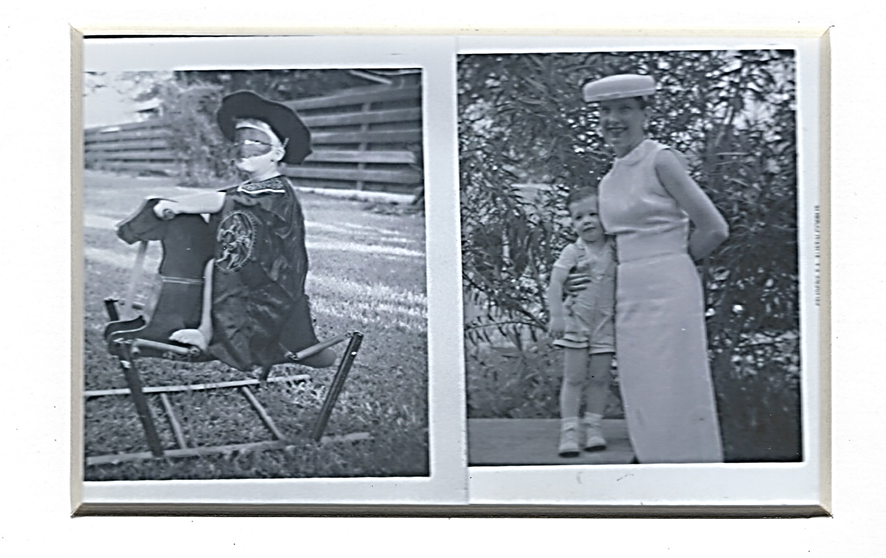
A Paradoxical Season
Published in Accountability, Goal Setting, LeadershipA Time to Work on Yourself
We’re entering the year’s busiest season.
As the holidays approach, things seem to speed up.
The paradox to be found amid all of the hustle and bustle and all of our planning and partying is the idea that the holiday season offers an ideal time to slow down, make time for ourselves and reflect on what matters.
If this idea appeals to you, please keep reading for five free resources.
Name It
I’m not exactly sure how the idea of deliberately thinking about goals became such a big part of me.
It was likely due to my mother. My father was the Arts & Entertainment editor of the Austin Statesman and was away most nights covering cultural events. As a journalist working for a daily newspaper, his deadlines were measured in hours and his idea of planning was thinking about when to trade his summer seersucker for fall tweed.
My mother ran our home, paying bills, planning and preparing meals, and dishing out discipline when my sister Laura and I got out of line. My mother held local and state leadership positions in the Parent Teacher Association, which required plenty of planning and extra measures of devotion, decision-making and diplomacy.
There were always lots of laughs in our home even though money was tight. Eating out at restaurants was a rarity. Vacations meant driving from Austin to the Texas gulf coast every summer. And we were among the last families in our neighborhood to own a color TV. From the time I could push a lawnmower, I worked to buy the things I wanted.
But before that, I wanted to be Zorro.

Envisioning a different future meant naming the future I wanted and then developing a plan to achieve it.
I believe you’ll never reach a goal you can’t name and you can’t achieve an outcome you haven’t written down.
5 Resources to Guide Your Thinking
As busy as December can be, it’s also a terrific time to pause and reflect.
And while I encourage the leaders I work with to think about what they want to accomplish in their business, I also encourage them to extend their thinking to consider what they want to achieve in their personal lives.
Here are five resources on my website you can download for free:
Vistage Chair John Younker first developed a version of this document decades ago. If you’re interested in a personal deep dive, check it out.
I introduced this exercise in my bestselling book Accountability. This quick exercise will tell you more about what matters to you than any contrived process that arrives at a predictable—and, frankly, lame—set of great-sounding but otherwise meaningless words.
Listening to other successful leaders in an all-day peer advisory meeting 30 years ago prompted this exercise, which examines seven significant life segments.
Our brain sometimes needs help moving from broad to specific and this worksheet determines relative levels of strength, passion, time and money associated with ideas and initiatives that should (or should not) become priorities.
If you’re still reading and want more, download this eBook. It’s about the length of three blogs and has more exercises and tools you can use.
There are plenty of successful people who don’t make time to plan.
These people may subscribe to the idea of planning proposed forty years ago by Sir John Harvey-Jones, the former chairman of the UK’s Imperial Chemical:
“Planning is an unnatural process; it is much more fun to do something. The nicest thing about not planning is that failure comes as a complete surprise, rather than being preceded by a period of worry and depression.”
Merry Christmas.
Ready to reset?
Attend my free Accountability webinar: I Did It! to set and achieve your 2021 goals.
- February 17th from 11 AM – 12:30 PM Central Time
- My free webinar will help you:
– Sharpen your personal goals
– Improve time management
– Tackle tough work-related issues
– Support remote workers
Learn More
To dive even deeper into the topic of accountability, I invite you to purchase a copy of my bestselling book, “Accountability: The Key to Driving a High-Performance Culture.”
Become a better leader.
Download my three free e-books.
Free Tips
Sign up to receive free tips on business, leadership, and life.
Get My Latest Book
HOW LEADERS DECIDE
History has much to offer today’s current and aspiring leaders.
Business schools teach case studies. Hollywood blockbusters are inspired by true events.
Exceptional leaders are students of history. Decision-making comes with the territory.



